How to join the RTA, CTA, Metra, and Pace in moving the region’s transit system Forward for All
April 12, 2022
April 12, 2022
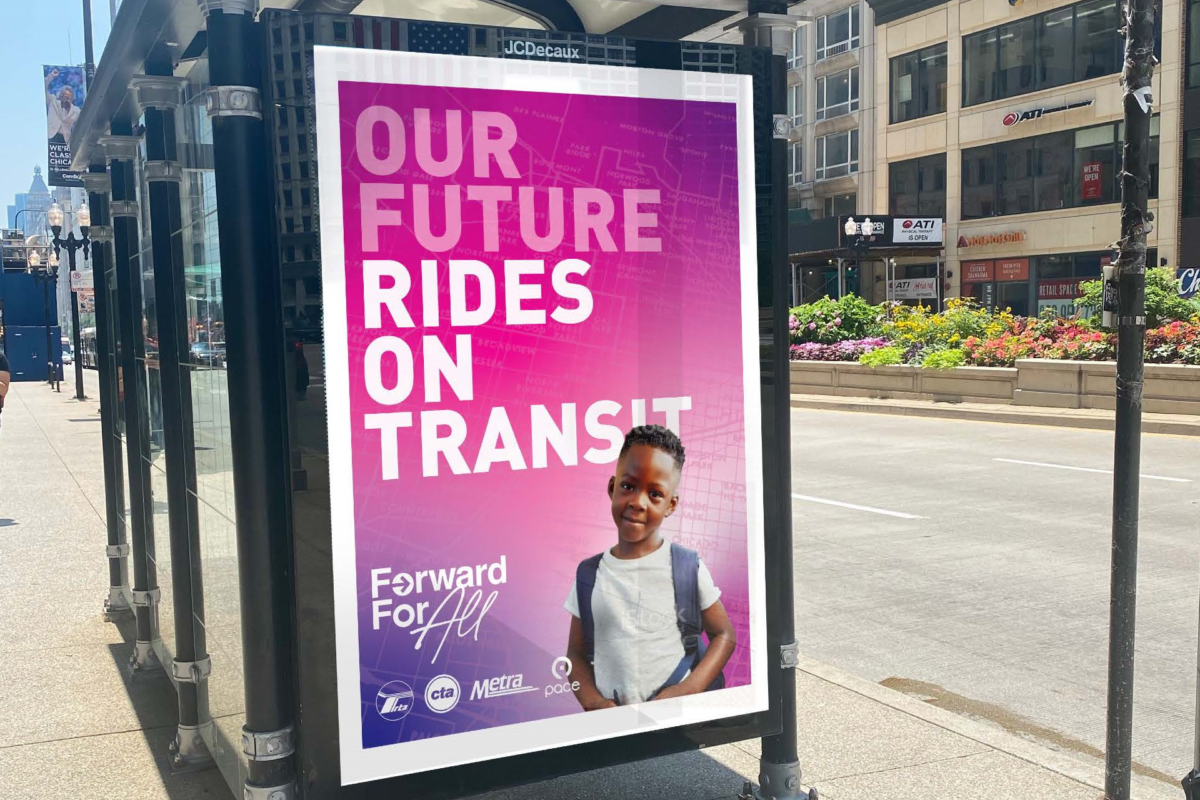
On April 3, the RTA launched the “Forward for All” campaign to show that transit is essential to the recovery and ongoing vibrancy of the Chicago region. In the face of COVID-19’s impact on transit ridership, this initial phase of “Forward for All” aims to strengthen trust and pride in the region’s transit system by building awareness of the economic, environmental, and quality of life benefits of public transportation.
Advocacy is an important factor in building and maintaining a transit system like the Chicago region’s, especially as COVID-19 continues to impact when and how people ride. Throughout the pandemic, transit has seen historic and sustained reductions in ridership, forcing agencies the world over to rethink their systems to meet riders’ changing needs. But some things have remained constant and true: transit impacts the economy, the environment, and quality of life in ways and at a scale nothing else can.
On the economic development front, an estimated 85% of regional commercial construction in 2017 was built within one-half mile of a transit station. Indeed, 60% of all new jobs added to our regional economy between 2005 and 2015 were located along high-quality public transit (Invest in Transit, 2018).
Transit is one of our greatest tools in the fight against climate change. Exhaust from cars, trucks, and planes is the single biggest source of carbon dioxide emissions—the largest contributing factor to climate change (United States Environmental Protection Agency). Public transportation offers our region the greatest opportunity to reduce carbon emissions: bus emissions per passenger mile are 33 percent lower than cars, and passenger trains are 76 percent lower (Transit Means Business, 2018). Public transportation’s overall effects save the U.S. 6 billion gallons of gasoline a year (American Public Transportation Association).
Finally, on contributing to affordability, the average American household spends 16 cents of every dollar on transportation, and 93% of that goes to buying, maintaining, and operating cars, the largest expenditure after housing (American Public Transportation Association). Cars are prohibitively expensive for so many. Transit offers the most affordable and safest way to move around our region, connecting people to opportunity.
Reminding ourselves, our peers, and our elected officials of the importance of public transportation is the first step in moving the region’s transit system Forward for All. Join the RTA, CTA, Metra, and Pace in advocating for transit by learning more at www.RTAChicago.org/ForwardForAll and sharing your favorite transit fact on social media using this toolkit.
Future phases of “Forward for All” will address challenges to the system and build support for comprehensive solutions stemming from the Regional Transit Strategic Plan currently in development by the RTA, CTA, Pace, and Metra and slated for adoption in early 2023.
Subscribe to our Newsletter
Related Articles
 New project management oversight report highlights more than 100 projects representing $8.2 billion in capital investments
New project management oversight report highlights more than 100 projects representing $8.2 billion in capital investments
The RTA’s Project Management Oversight (PMO) program ensures that the Service Boards—CTA, Metra, and Pace—are spending capital funds and managing their infra...
June 27, 2024 Transportation Tuesday recap: Improving and expanding the transit system strategically
Transportation Tuesday recap: Improving and expanding the transit system strategically
With last year’s adoption of Transit is the Answer came 15 new evaluation metrics that comprise a strategy for evaluating and selecting capital projects. Now...
May 30, 2024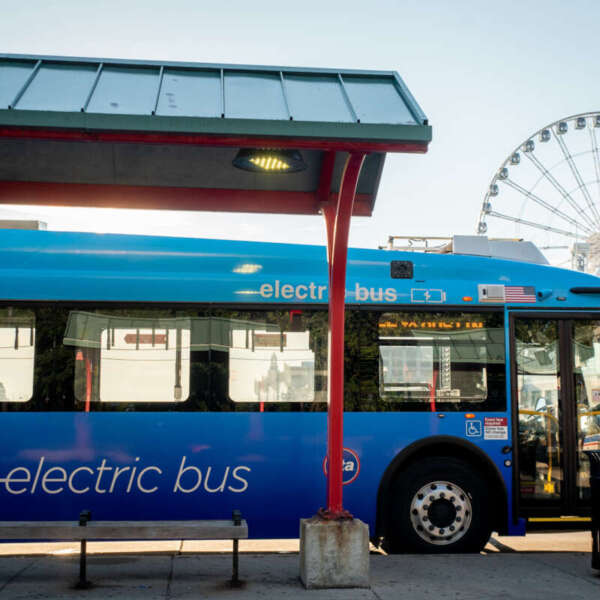 Transit is the answer to meeting Illinois’ climate goals
Transit is the answer to meeting Illinois’ climate goals
As we celebrate Earth Day 2024, the RTA is announcing Transforming Transit —the agency’s commitment to lead the Chicago region’s transit system into the futu...
April 18, 2024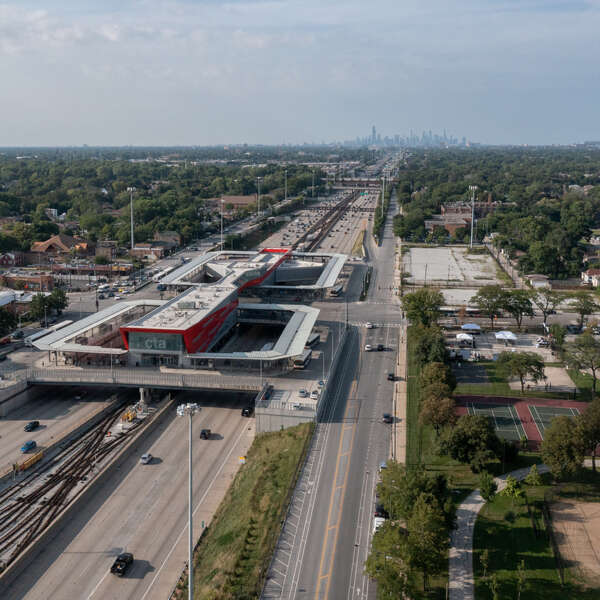 Three years into the Infrastructure Investment and Jobs Act, Chicago’s transit system is winning competitive grants and advancing critical projects
Three years into the Infrastructure Investment and Jobs Act, Chicago’s transit system is winning competitive grants and advancing critical projects
The Infrastructure Investment and Jobs Act (IIJA), passed in 2021, represented a historic level of federal investment for shoring up the nation’s infrastruct...
March 12, 2024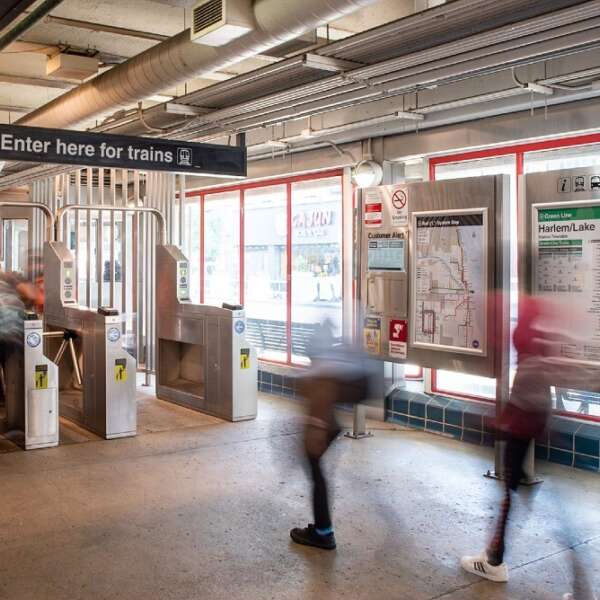 Why fully funding paratransit service and reduced fare programs is key to closing the transit budget gap
Why fully funding paratransit service and reduced fare programs is key to closing the transit budget gap
With transit facing a fiscal cliff in the coming years, fully funding critical programs like ADA paratransit service and free and reduced fare programs is on...
February 29, 2024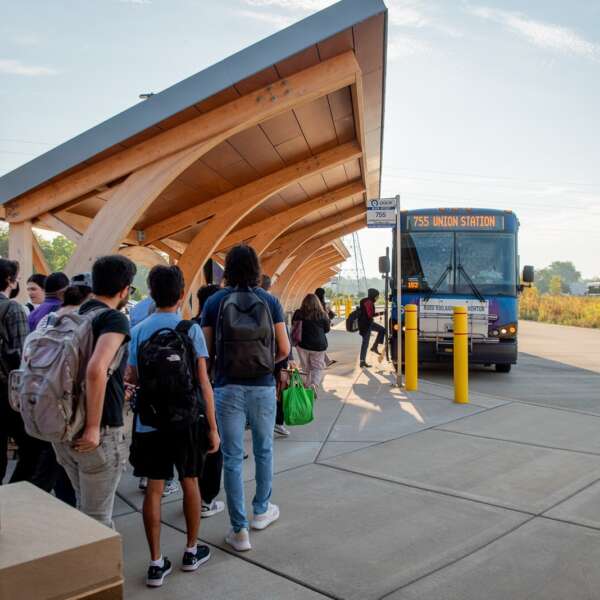 RTA releases semi-annual project management oversight report highlighting more than 100 capital projects
RTA releases semi-annual project management oversight report highlighting more than 100 capital projects
Under its Project Management Oversight (PMO) program, the RTA ensures that the Service Boards—CTA, Metra, and Pace—are spending capital funds and managing th...
January 3, 2024